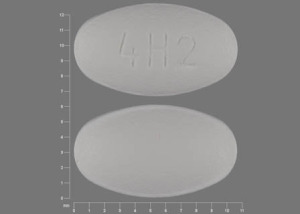Cetirizine Dosage
Medically reviewed by Drugs.com. Last updated on Jun 11, 2025.
Applies to the following strengths: 10 mg; 5 mg; 1 mg/mL; 2.5 mg; 10 mg/mL
Usual Adult Dose for:
Usual Geriatric Dose for:
Usual Pediatric Dose for:
Additional dosage information:
Usual Adult Dose for Allergic Rhinitis
5 to 10 mg orally once a day
- Maximum dose: 10 mg/day
Uses:
- Relief of symptoms associated with perennial allergic rhinitis due to allergens (e.g., sneezing, rhinorrhea, postnasal discharge, nasal pruritus, ocular pruritus, tearing)
- Treatment of uncomplicated skin manifestations of chronic idiopathic urticaria
Usual Adult Dose for Urticaria
5 to 10 mg orally once a day
- Maximum dose: 10 mg/day
Uses:
- Relief of symptoms associated with perennial allergic rhinitis due to allergens (e.g., sneezing, rhinorrhea, postnasal discharge, nasal pruritus, ocular pruritus, tearing)
- Treatment of uncomplicated skin manifestations of chronic idiopathic urticaria
Usual Geriatric Dose for Allergic Rhinitis
5 to 10 mg orally once a day
- Maximum dose: 10 mg/day
Comment:
- Some experts recommend: Patients over 65 years of age should start with 5 mg orally once a day.
Uses:
- Relief of symptoms associated with perennial allergic rhinitis due to allergens (e.g., sneezing, rhinorrhea, postnasal discharge, nasal pruritus, ocular pruritus, tearing)
- Treatment of uncomplicated skin manifestations of chronic idiopathic urticaria
American Academy of Otolaryngology (AAO) and Head and Neck Surgery Foundation (HNSF) recommendations:
66 to 76 years: 5 to 10 mg orally per day
77 years and older: 5 mg orally per day
Duration of therapy: 6 months or longer
Comment:
- Intranasal antihistamines may be used concomitantly for patients with episodic, perennial, and/or seasonal allergic rhinitis.
Use: Treatment of allergic rhinitis and sneezing and itching
Usual Geriatric Dose for Urticaria
5 to 10 mg orally once a day
- Maximum dose: 10 mg/day
Comment:
- Some experts recommend: Patients over 65 years of age should start with 5 mg orally once a day.
Uses:
- Relief of symptoms associated with perennial allergic rhinitis due to allergens (e.g., sneezing, rhinorrhea, postnasal discharge, nasal pruritus, ocular pruritus, tearing)
- Treatment of uncomplicated skin manifestations of chronic idiopathic urticaria
American Academy of Otolaryngology (AAO) and Head and Neck Surgery Foundation (HNSF) recommendations:
66 to 76 years: 5 to 10 mg orally per day
77 years and older: 5 mg orally per day
Duration of therapy: 6 months or longer
Comment:
- Intranasal antihistamines may be used concomitantly for patients with episodic, perennial, and/or seasonal allergic rhinitis.
Use: Treatment of allergic rhinitis and sneezing and itching
Usual Pediatric Dose for Allergic Rhinitis
6 months to 2 years:
- Initial dose: 2.5 mg orally once a day
- Maintenance dose: 2.5 mg orally once to 2 times a day
- Maximum dose: 5 mg/day
2 to 5 years:
- Initial dose: 2.5 mg orally once a day
- Maintenance dose: 2.5 mg orally 2 times a day OR 5 mg orally once a day
- Maximum dose: 5 mg/day
6 years and older: 5 to 10 mg orally once a day
- Maximum dose: 10 mg/day
Uses:
- Relief of symptoms associated with perennial allergic rhinitis due to allergens (e.g., sneezing, rhinorrhea, postnasal discharge, nasal pruritus, ocular pruritus, tearing) in patients 2 years and older
- Treatment of uncomplicated skin manifestations of chronic idiopathic urticaria in patients 6 months and older
Usual Pediatric Dose for Urticaria
6 months to 2 years:
- Initial dose: 2.5 mg orally once a day
- Maintenance dose: 2.5 mg orally once to 2 times a day
- Maximum dose: 5 mg/day
2 to 5 years:
- Initial dose: 2.5 mg orally once a day
- Maintenance dose: 2.5 mg orally 2 times a day OR 5 mg orally once a day
- Maximum dose: 5 mg/day
6 years and older: 5 to 10 mg orally once a day
- Maximum dose: 10 mg/day
Uses:
- Relief of symptoms associated with perennial allergic rhinitis due to allergens (e.g., sneezing, rhinorrhea, postnasal discharge, nasal pruritus, ocular pruritus, tearing) in patients 2 years and older
- Treatment of uncomplicated skin manifestations of chronic idiopathic urticaria in patients 6 months and older
Renal Dose Adjustments
Data not available
Liver Dose Adjustments
Data not available
Precautions
CONTRAINDICATIONS:
- Hypersensitivity to the active component, hydroxyzine-containing antihistamines, or any of the ingredients
Safety and efficacy of prescription formulations have not been established in patients younger than 6 months, and with over-the-counter formulations in patients younger than 6 years.
Consult WARNINGS section for additional precautions.
Dialysis
Data not available
Other Comments
Administration advice:
- This drug may be taken with or without food.
- Capsules should be taken with a glass of water.
Storage requirements:
- Oral solution: Protect from light.
- Oral liquid gel tablets: Protect from humidity, light, and temperatures above 40C.
Patient advice:
- Inform patients that this drug may cause drowsiness, and they should avoid driving or operating machinery until the full effects of the drug are seen.
- Patients should be told to report allergic reactions.
Frequently asked questions
- Is it OK to take antihistamines every day?
- Should cetirizine be taken at bedtime or upon awakening?
- Which antihistamines make you drowsy?
- Can you take antihistamines when pregnant?
- Is Generic Zyrtec Available?
More about cetirizine
- Check interactions
- Compare alternatives
- Pricing & coupons
- Reviews (297)
- Drug images
- Latest FDA alerts (3)
- Side effects
- Patient tips
- During pregnancy
- Support group
- Drug class: antihistamines
- Breastfeeding
Patient resources
Other brands
Professional resources
Other brands
Zyrtec, Aller-Tec, Quzyttir, All Day Allergy, ... +3 more
Related treatment guides
See also:
Further information
Always consult your healthcare provider to ensure the information displayed on this page applies to your personal circumstances.


